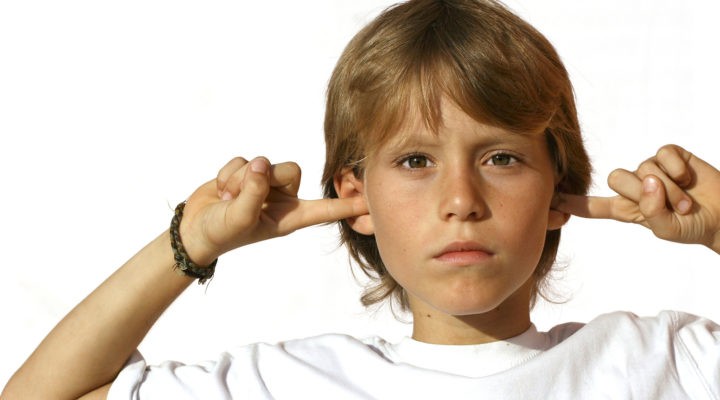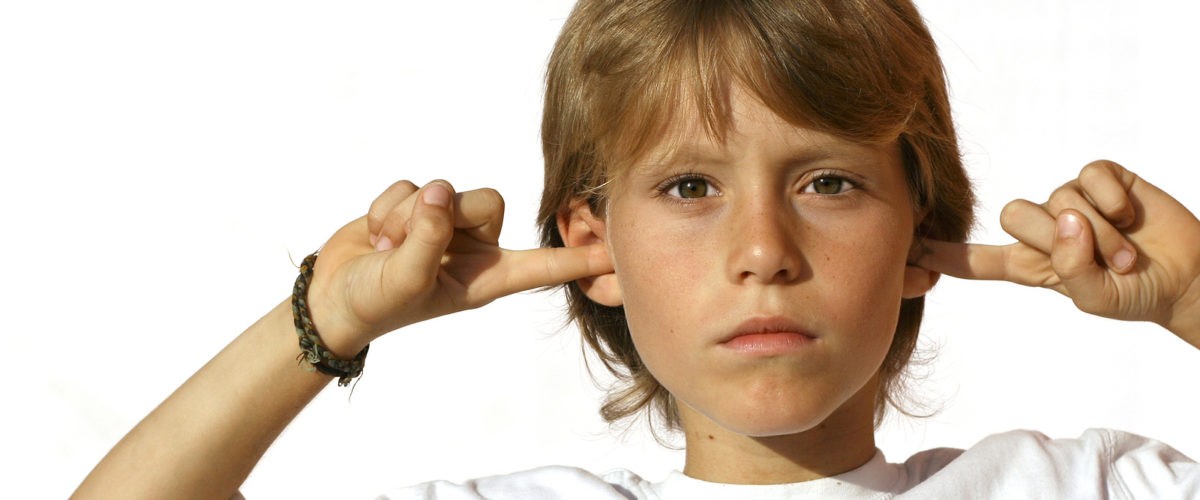During the 53 years since I graduated from Mississippi College, there have been occasional opportunities in my international work with others to apply some of the information I was taught in the 16 credit hours of classes from my psychology minor. Especially during my years working with teenagers in churches in Kentucky and North Carolina, as well as in Jakarta, Indonesia, I discovered that my course in adolescent psychology was useful. From time to time, even the disorders and mental health challenges I studied in abnormal psychology have provided insights about adults I would not otherwise have had.
While I am no psychologist — and certainly not an M.D. with a specialization in psychiatry — I am aware, at a simple layperson’s level, of connections between basic descriptions of psychological phenomena and the behavior I am either exhibiting myself or observing in others. In our chaotic, unsettled world there are many such occasions for self-reflection or for reasoned, unbiased assessments of the behavior of others.

Robert Sellers
Thus, watching President Donald Trump in the days before and after the Nov. 3 election, I have noted just how much his reactions to losing resemble those of a child who has not been denied anything and thus expects never to be disappointed.
To be clear, I do not wish to caricature his behavior by floating another helium-filled, diapered-Donald “man-baby” balloon. Our current medical, financial, political and social crises militate against such trivial responses. Rather, as Trump continues to refuse to concede an election so clearly lost, it is critical to add my voice to the many who are concerned that his behavior is creating a dangerous situation for our democracy and national security. The president’s unwillingness to deal with his loss and to provide the necessary accommodations to support the new administration appears immature and do not reflect the actions of a reasonable adult, no matter how disappointed or defeated that adult might be.
Susan Heitler, a Harvard graduate with a Ph.D. in clinical psychology from NYU, has written a relevant article in a popular journal read by many non-professional helpers like me. Heitler practices in Colorado, where she has developed clinical techniques that have made her an international innovator, popular TED Talk presenter, respected author of numerous books and a workshop trainer for therapists and professional counselors. Her article, written just four months into Trump’s administration, but more observably relevant today than then, is titled “Can You Spot 10 Signs of a Childish Adult?”
“So many people reach chronological adulthood without having mastered the core elements of adult emotional functioning.”
Heitler explains: “In my clinical practice, I primarily treat folks struggling with depression, anxiety, excessive anger and marriage difficulties. Very often, an underlying issue is that for one reason or another, the client never quite grew up. So many people reach chronological adulthood without having mastered the core elements of adult emotional functioning.”
Donald Trump is not Susan Heitler’s client or patient, and certainly not mine; it would be ludicrous and presumptive to pretend that is the case. Yet, although the clinician did not write this piece about the president, what she says about psychological age compared to physical age seems appropriate when applied to Trump, even in the eyes of a layperson like myself.
Physical age, of course, is determined by the number of our birthdays. Physically, the president is 74. Psychological, or emotional age, on the other hand, “becomes evident in emotional reactions and habits. For instance, adults can stay calm whereas children tend to be quicker to anger. Adults exercise careful judgment before talking whereas children may impulsively blurt out tactless, hurtful words.” Trump’s psychological or emotional age is a matter for speculation.
Here are Heitler’s 10 signs of childish adult behavior, with brief explanations and possible applications.
- Emotional escalations: “Young children often cry, get mad or outwardly appear petulant and pouting. Grownups seldom do.” The president’s emotions fluctuate wildly, depending upon whether he feels accepted or rejected. Absent from national public view for more than a week as he processed the depressing news of his electoral loss, in his one televised presidential appearance where he discussed coronavirus vaccines, he maintained an air of superiority, covering his hurt feelings with bravado. Meanwhile, off-camera, he continues to tweet his groundless accusations of a rigged election.
- Blaming: “When things go wrong, young children look to blame someone. Grownups look to fix the problem.” Trump is a chronic blamer. He says his election loss stems from widespread voter fraud, untrustworthy mail-in votes, faulty counting, illegal ballots and a massive Democratic conspiracy to steal the presidency from him. No proof of these assertions has been provided, however, and even the Department of Homeland Security asserts that this election was the most secure in our nation’s history.
- Lies: “When there’s a situation that’s uncomfortable, young children might lie to stay out of trouble. Grownups deal with reality, reliably speaking the truth.” The president explicitly lies or distorts the truth so often that his inability to accept reality or communicate the truth is deemed “pathological” by historians, sociologists and physicians. He appears to lie, not only to keep himself out of trouble, but to generate discord and trouble for his opponents.
- Name-calling: “Children call each other names. Adults seek to understand issues. Adults do not make ad hominen attacks, that is, attacks on people’s personal traits. Instead, they attack the problem. They do not disrespect others with mean labels.” Trump labels his opponents with elementary and middle school playground monikers, targeting another’s facial, body or personality traits in order to belittle or dismiss serious challengers. At the core of his refusal to concede this election is his incredulity, his shame, at losing to “Sleepy Joe.”
- Impulsivity– or as therapists say, “poor impulse control”: “Children strike out impulsively when they feel hurt or mad. They speak recklessly or take impulsive action without pausing to think about the potential consequences. Similarly, instead of listening to others’ viewpoints, they impulsively interrupt them. Adults pause, resisting the impulse to shoot out hurtful words or actions. They calm themselves. They then think through the problem, seeking more information and analyzing options.” Whether his instructing Secretary of State Mike Pompeo or White House Press Secretary Kaileigh McEnany to claim, despite their telling grins, that there will be a second Trump administration, or his behind-the-scenes intimidation of Senate Republicans so they will remain silent about the results of the election, Trump’s behavior — while never totally out of character — often feels impulsive and startling.
- Need to be the center of attention: “Ever tried to have adult dinner conversations with a 2-year-old at the table? Did attempts to launch a discussion with others at the table result in the child getting fussy?” One only needs to recall the first presidential debate to recognize the childish impulse of Donald Trump to dominate or talk over “anyone else at the table.” Moreover, he is reportedly considering whether he will soon return to the campaign trail — as a candidate for reelection in 2024 — undoubtedly because he loves the loud adulation and raucous approval of thousands of his voter base who crowd his rallies.
- Bullying: “A child who is physically larger than other children his age can walk up to another child who is playing with a toy he would like and simply take it. The other child may say nothing lest the bully turn on them with hostility. In many cases, it’s safer just to let a bully have what he wants. Adults, on the other hand, respect boundaries: Yours is yours and mine is mine.” Is it too incredulous to think that Donald Trump has always gotten what he has wanted? Now he is faced with the horrifying thought of having something he desperately desires withheld from him.
- Budding narcissism: “If children — or adults — can get whatever they want because they are bigger, stronger or richer, they become at risk for learning that the rules don’t apply to them … . Psychologically strong people listen to others, hoping to understand others’ feelings, concerns and preferences. Narcissists hear only themselves and are emotionally brittle as a result. They operate like children who want to stay out and play — even though dinner is on the table — and who pitch a fit rather than heed their parent’s explanation that the family is eating now. Their mindset, in short, is ‘It’s all about me.’” The president’s tendency toward narcissism has been written about repeatedly. His self-adulation is so evident, however, that to say Trump’s narcissism is “budding” is a serious misstatement: by many measurements, it is in full bloom.
- Immature defenses: “Adults use defense mechanisms like listening to others’ concerns as well as to their own. They then engage in collaborative problem-solving. These responses to difficulties signal psychological maturity. Children tend to regard the best defense as a strong offense. While that defensive strategy may work in football, attacking anyone who expresses a viewpoint different from what they want is, in life, a primitive defense mechanism. Another primitive defense is denial: ‘I didn’t say that!’ or ‘I never did that!’ when in fact they did say or do the thing they claim not to have done. Sound childlike to you?” Trump uses attack and denial as two favorite defense mechanisms that he thinks will remove any responsibility he may have for his actions.
- No observing ego— that is, no ability to see, acknowledge and learn from their mistakes: “When emotionally mature adults ‘lose their cool’ and express anger inappropriately, they soon after, with their ‘observing ego,’ realize that their outburst was inappropriate. That is, they can see with hindsight that their behavior was out of line with their value system. They can see if their outburst has been, as therapists say, ego dystonic (against their value system).” But the president is admittedly unable to acknowledge any wrong. That is why he seems to have no superego, why he says he never feels the need to ask God for forgiveness.
A question being asked now, by political scientists, historians and others, is how one might evaluate the kind of behavior Donald Trump is exhibiting if it were happening in another country. In that vein, Brendan Nyhan calls Trump’s actions an anti-democratic attempt to set aside the will of the country’s citizens, while social scientist Ryan Enos calls it “one of the gravest threats to democracy” America has ever faced.
These judgments are sobering and frightening. But following the thinking of Susan Heitler, Trump’s behavior is also unmistakably and clinically childish. She concludes: “It’s easy to love children who act like children. It’s harder to love someone who acts like a child in the body of a grownup.”
Perhaps this is one reason why the largest number of votes ever cast for a candidate in American presidential election history was given to the one who was perceived to be the adult in the race.
Rob Sellers is professor of theology and missions emeritus at Hardin-Simmons University’s Logsdon Seminary in Abilene, Texas. He is the immediate past chair of the board of the Parliament of the World’s Religions in Chicago. He and his wife, Janie, served a quarter century as missionary teachers in Indonesia. They have two children and five grandchildren.


